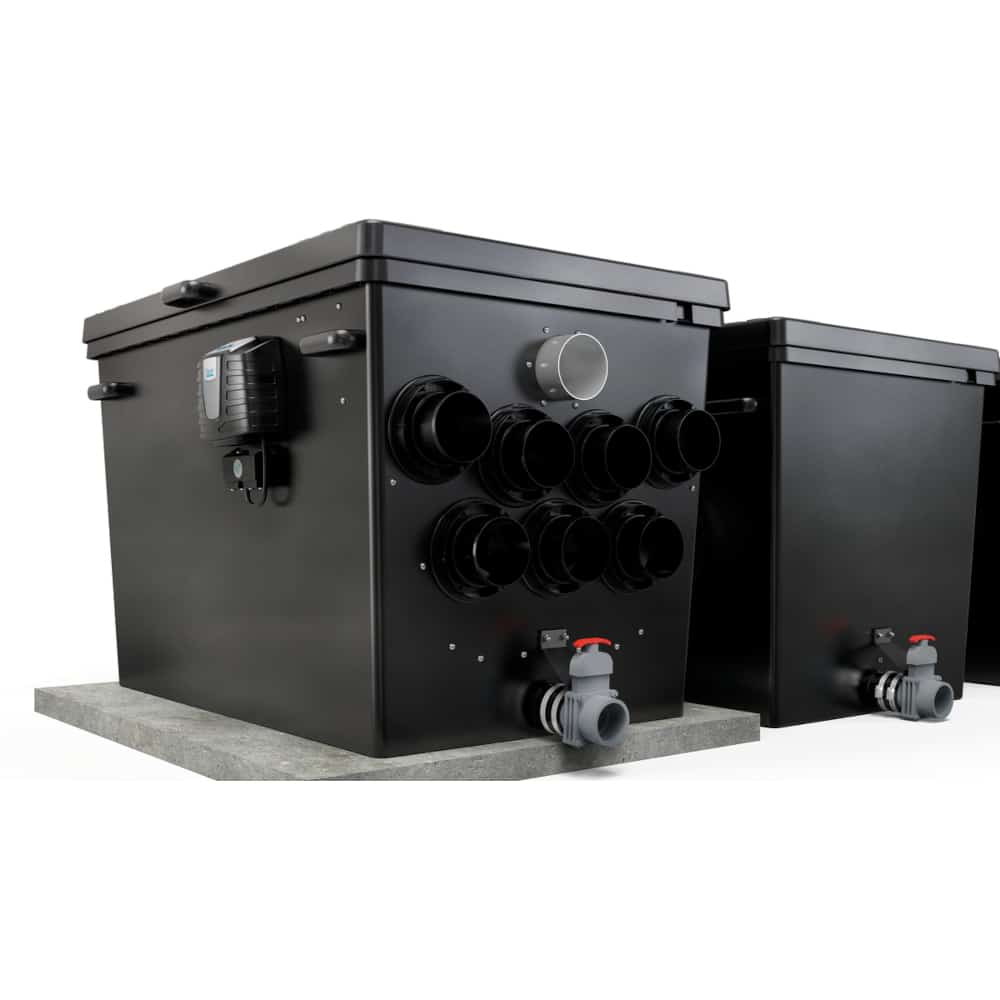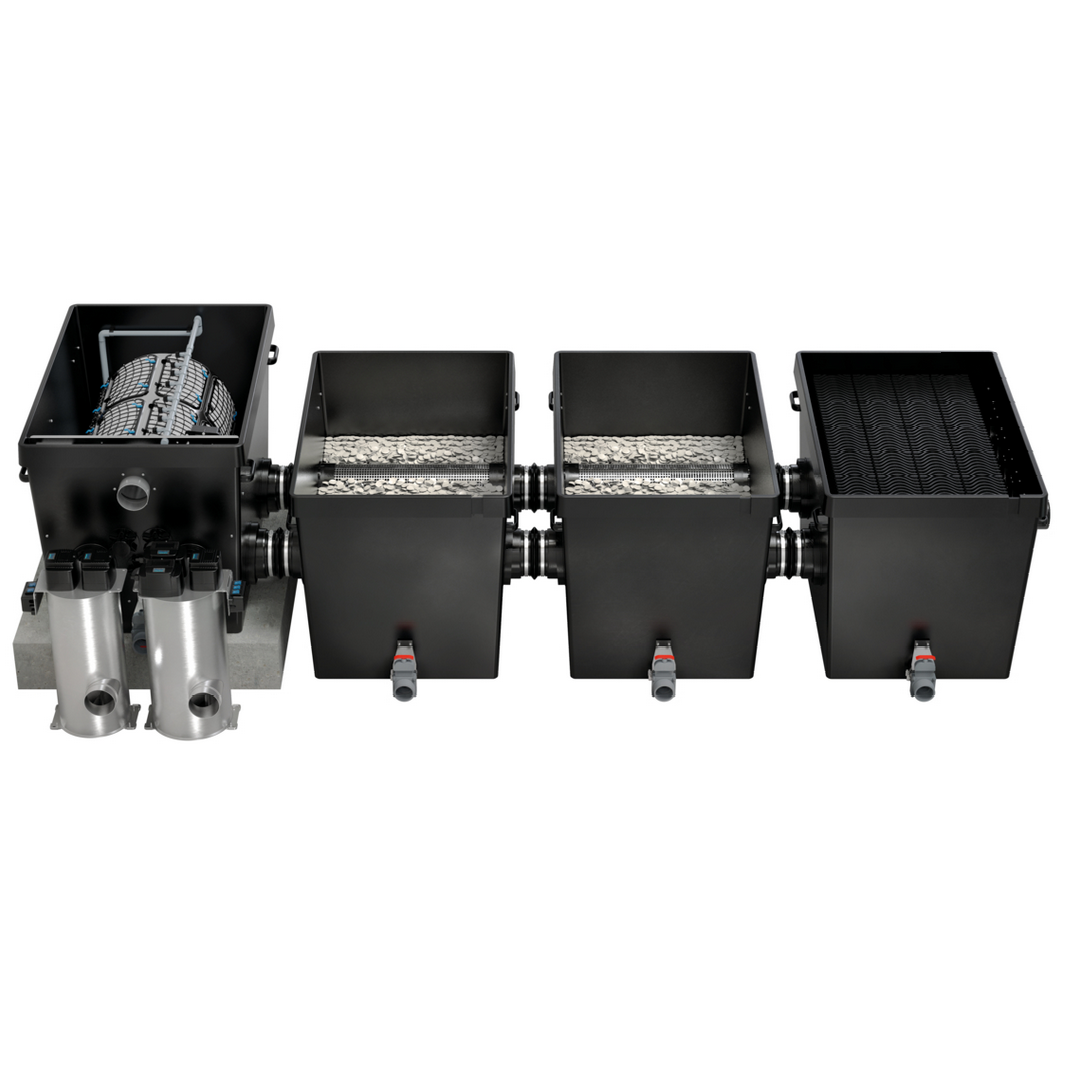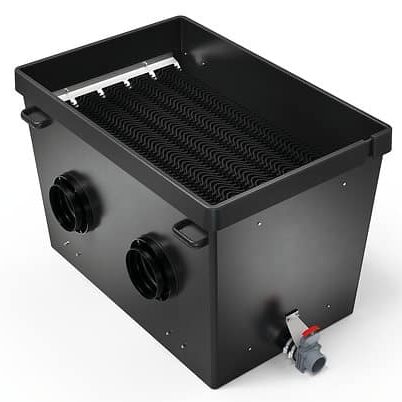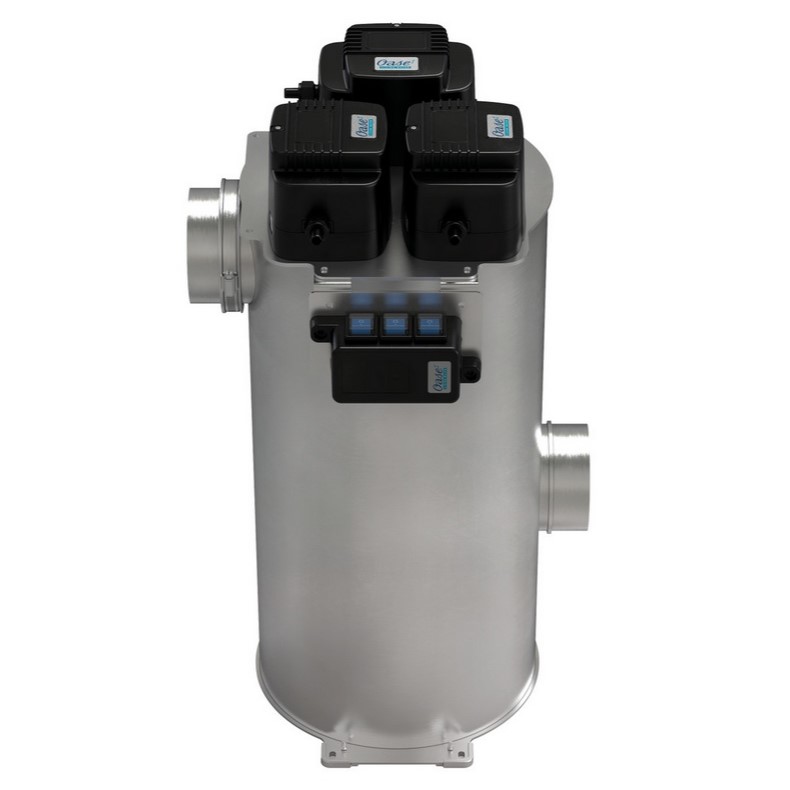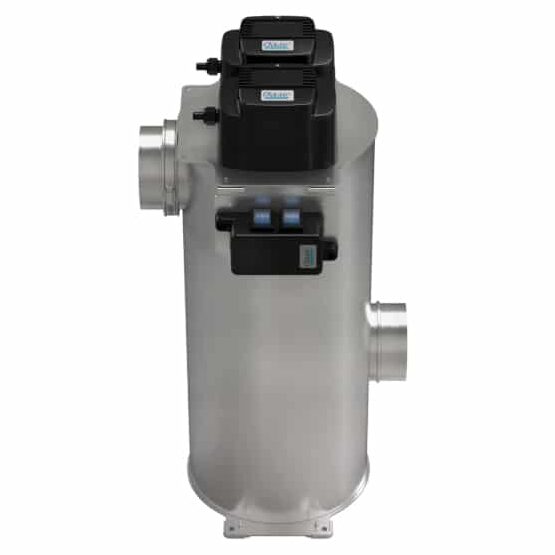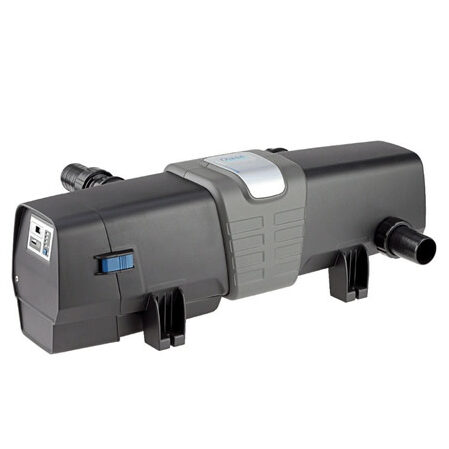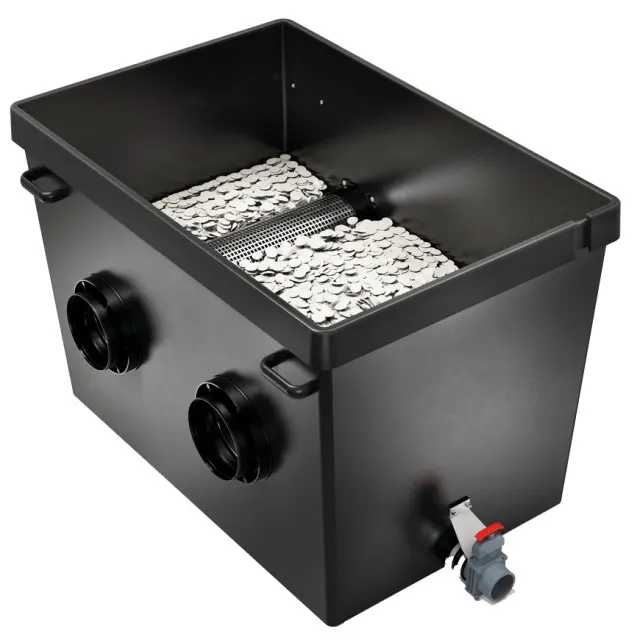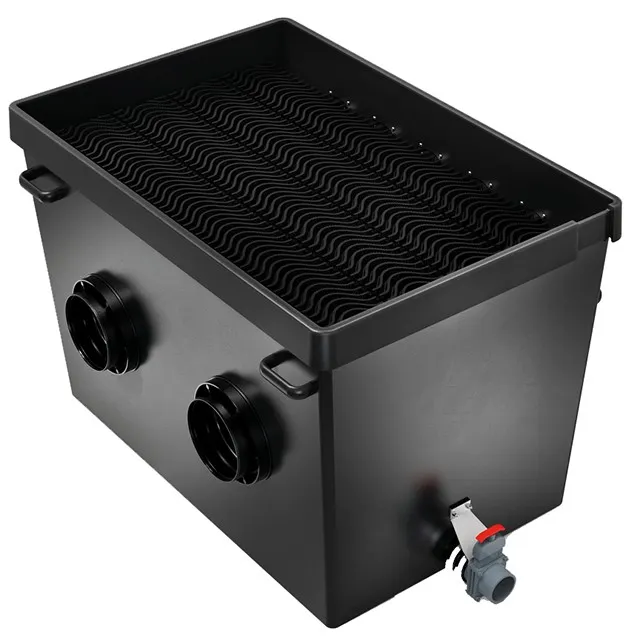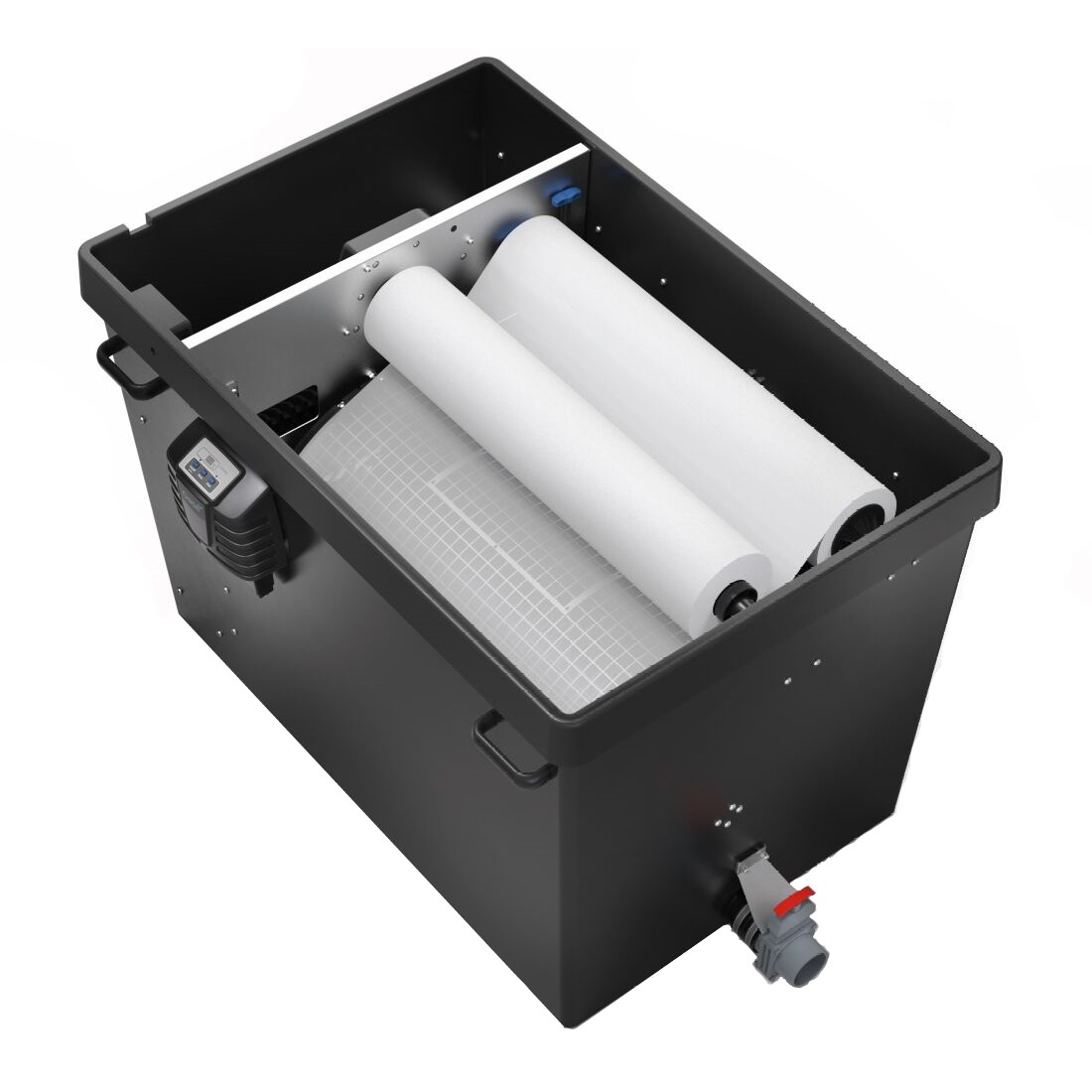Lake Filtration – Frequently Asked Questions
Below, we’ve compiled a list of frequently asked questions to help you understand the importance, functionality, and benefits of lake filtration systems for maintaining healthy and balanced lake ecosystems.
1. What is lake filtration, and why is it important?
Lake filtration refers to the process of removing contaminants, pollutants, and excess nutrients from lake water to maintain water quality and promote a healthy aquatic environment. Filtration helps prevent algae blooms, improves water clarity, and supports fish and other aquatic life by creating a balanced ecosystem.
2. How does lake filtration work?
Lake filtration systems utilize various methods to remove contaminants from the water, including mechanical filtration, biological filtration, and chemical filtration. Mechanical filtration involves physically trapping particles and debris, while biological filtration relies on beneficial bacteria to break down organic waste. Chemical filtration may involve the use of additives or treatments to remove specific pollutants or improve water quality.
3. What are the benefits of using a lake filtration system?
- Improved Water Quality: Lake filtration systems help remove suspended particles, algae, and pollutants, resulting in clearer and cleaner water.
- Algae Control: Filtration systems reduce nutrient levels and prevent algae blooms, improving water clarity and reducing the risk of water quality issues.
- Fish Health: By maintaining optimal water quality, filtration systems support fish health and vitality, reducing stress and susceptibility to diseases.
- Ecosystem Balance: Filtration systems promote a balanced ecosystem by removing excess nutrients and supporting beneficial bacteria and aquatic plants.
4. What types of filtration systems are available for lakes?
There are several types of filtration systems used in lakes, including:
- Mechanical Filters: These filters remove suspended particles and debris from the water through a physical barrier, such as filter pads or screens.
- Biological Filters: Biological filters utilize beneficial bacteria to break down organic waste and harmful substances, promoting natural water purification.
- Chemical Filters: Chemical filtration may involve the use of additives or treatments to remove specific contaminants or improve water quality parameters.
5. How do I choose the right filtration system for my lake?
When selecting a filtration system for your lake, consider factors such as the size and depth of the lake, water quality issues or challenges, the desired filtration capacity, and your budget. Choose a system that is suitable for the specific needs and characteristics of your lake ecosystem.
6. Can lake filtration systems be used in conjunction with other lake management practices?
Yes, lake filtration systems can be used in conjunction with other lake management practices such as aeration, nutrient management, and aquatic plant management to create a comprehensive lake management strategy. Properly combining these practices helps address multiple lake issues and promotes a healthy and sustainable lake ecosystem.
7. How do I install and maintain a lake filtration system?
Installation of a lake filtration system typically involves placing the filtration components, such as filters and pumps, in strategic locations throughout the lake, connecting them with tubing or pipelines, and ensuring proper operation. Regular maintenance includes cleaning the filtration media, inspecting for debris or blockages, and monitoring water quality parameters to ensure optimal filtration performance.
8. Are lake filtration systems energy-efficient?
Many modern lake filtration systems are designed to be energy-efficient, consuming minimal electricity while providing effective water purification. Look for systems with energy-saving features such as efficient pump motors and adjustable operating modes to minimize energy consumption and operating costs.
9. How long do lake filtration systems last, and when should they be replaced?
The lifespan of a lake filtration system varies depending on factors such as usage, maintenance, and environmental conditions. With proper care and regular maintenance, most systems can last for several years before requiring replacement. It’s essential to monitor system performance regularly and address any issues promptly to prolong its lifespan and effectiveness.
10. Can lake filtration systems be customized to suit specific lake characteristics or requirements?
Yes, many lake filtration systems can be customized with various components, configurations, and filtration media to suit specific lake characteristics or requirements. Whether you need to increase filtration capacity, address specific water quality issues, or accommodate unique lake features, there are customization options available to tailor the filtration system to your needs.
If you have any further questions or require assistance in selecting the right filter system for your lake, don’t hesitate to reach out and contact us.






